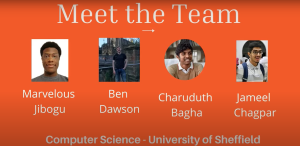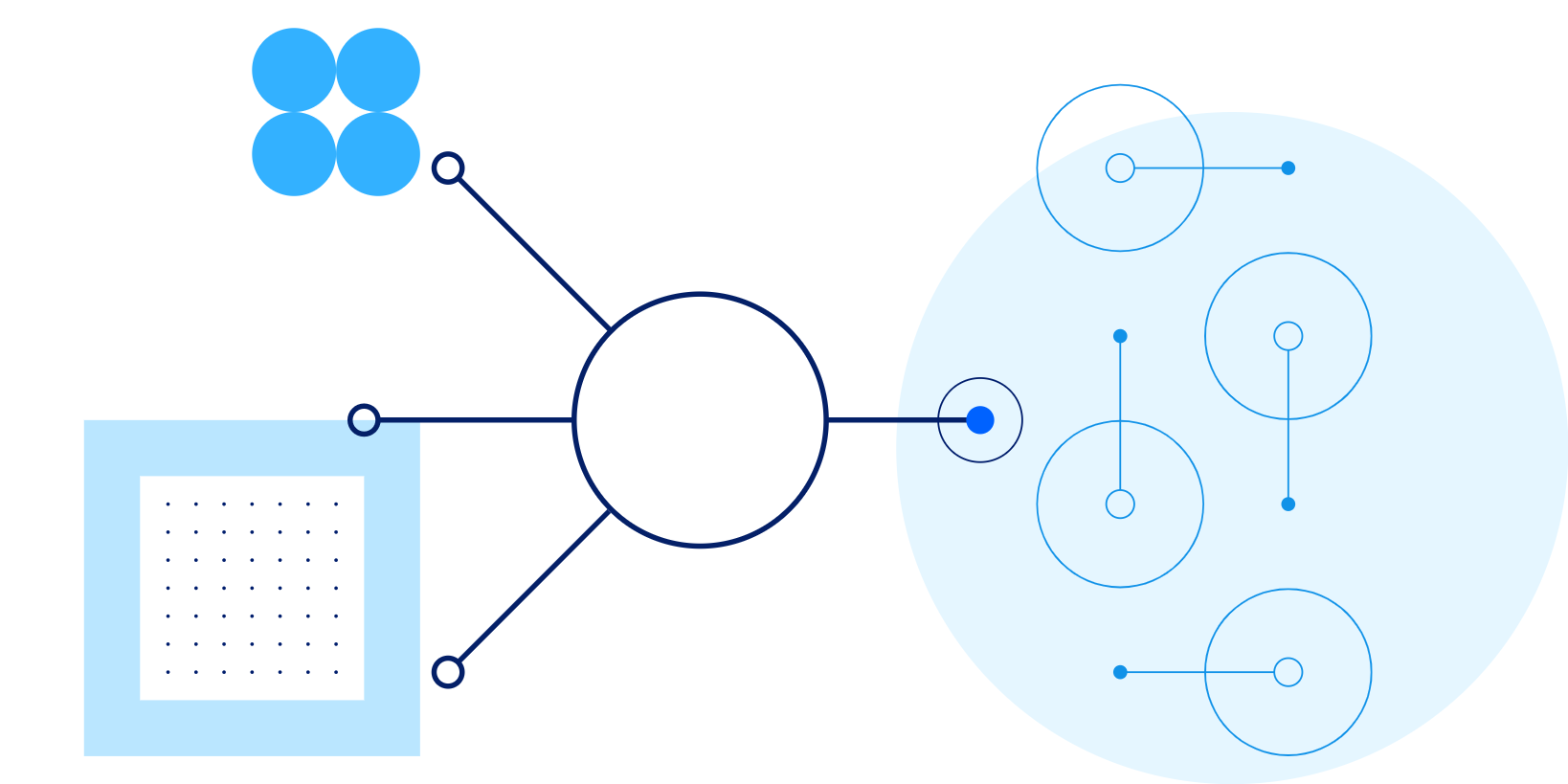Perspectives
Building The Bridge between the global North and South
10 January, 2022 | Written by: John McNamara
Categorized: Perspectives
Share this post:
The Call for Code Challenge was created by philanthropist David Clark, founder of the David Clark Cause, in partnership with the Office of the United Nations High Commissioner for Human Rights, the Linux Foundation and IBM. This Challenge is open to developers, start-ups, academics, NGOs etc. from around the world. The objective is to imagine innovative open-source solutions based on AI, IoT, blockchain, cloud computing etc. to address major global environmental challenges: water sanitation, world hunger, responsible production and consumption. This competition is aligned with IBM’s initiative to invest $30 million over five years to use the full potential of technologies in order to protect the environment, save human lives and improve the future of the next generations.
University of Sheffield: The Bridge
They are four computer science students at the University of Sheffield with a shared vision: bridging the gap between the Global North and South. Marvelous Jibogu, Ben Dawson, Bagha Charuduth, and Jameel Chagpar form one of two British finalist teams in the IBM Call for Code challenge 2021. Their solution, aptly called The Bridge, allows sellers living in the Global South to sell products to buyers in the Global North while cutting out the shipping process. They explain the positive impact this solution has on improving the quality of life for sellers living in the Global South, and at the same time combat climate change.
Please tell us more about your idea
Jameel: We realized that many sellers, artisans, etc. in the Global South have products that could interest buyers in the Global North but that they either didn’t have a marketplace, or the associated shipping was expensive and created unnecessary carbon footprint. We saw a great opportunity to connect seller from the Global South with customers in the Global North, all while considering the environment. The seller sends us their product. We scan the object, list it on our website, and recreate it on demand on a 3D printer for a buyer in the Global North. This creates commerce and offsets carbon footprint.
Ben: The original seller receives the money from the sale, and we only take a 5% commission (which helps us to keep operating.) These revenues give them a source of income, and eventually improve their standard of living.
How did your participation in Call For Code 2021 start?
Bagha: We were all in the same start-up work group and attending a start-up event, Sheffield Startup Summer, organized by one of our lecturers to give students an idea about entrepreneurship and startups. For the CFC challenge, we looked at the themes proposed by IBM, which were already great. We just had to make some pivots on our original solution from the Startup Summer event for it to fit the theme chosen in the little time we had – a week and a half. One of those pivots involved changing our theme from hunger to green consumption.
Did you have any expectations going into the competition?
Bagha: We didn’t really have any expectations, it was just a matter of giving it our best and see what happens.
What was your overall experience preparing the 2021 submission?
Ben (laughs): We knew going in that it was going to be work around-the-clock.
Bagha: Overall, it was a fun experience with a great team. We had to overcome a few logistic challenges, like being physically located in different countries and time zones, from the UK to Kenya and Mauritius, but collaborating remotely never really was a problem as far as presence and availability goes. Right now, it’s an MVP (minimum viable product) but we continue to work on it to make it to a full-fledged product.
How does your solution help save the planet?
Jameel: Cutting out the shipping process decreases the carbon footprint.
Marvelous: Our original idea revolved around “Zero Hunger” – ensuring a stable income for people in the Global South. But as we went along our solution turned from “Feed the planet” to “Save the planet”.
Which technology did you choose, and why?
Bagha: We used IBM’s Watson Studio and IBM Cloud Foundry. It was important to keep technology simple because sellers in the Global South can utilize the platform but not all of them are well equipped with technology. As we continue to work on the solution, we will still integrate a Speech-to-Text and Text-to-Speech tool with a translator functionality.
Did you ask IBM for support? Or did you seek advice from any outside specialists who could advise you on the development and content of your solution?
Bagha: IBM offers lots of services and support to students. Outside IBM, we received feedback from our lecturers, and we also talked to environmentalists, legal advisors, and marketing experts.
Ben: Talking with John McNamara, a master inventor at IBM, was really instrumental. He was a great resource.
Marvelous: The leaders of the Sheffield Startup Summer and industry mentors were also very supportive.
What did this adventure bring you on a personal level, what did you discover by way of experience?
Bagha: On the professional side, this CFC challenge definitely built skills in good business practices and the different aspects of coding, and taught us a better understanding of social issues. On a personal level, working as a team of four, we all learned from each other how to overcome differences, and to demonstrate leadership, soft skills, and discipline. What I took away from it was that you really can make a difference in the world.
Ben: We also saw and found it interesting how technologically and ecologically advanced IBM really is.
Marvelous: Taking the step to act is a lot easier than you think if you harness the power of technology.
Jameel: Personally, I learned that being able to solving a problem boosts confidence in yourself.
Do you plan to deploy your application?
Marvelous: Yes! The plan is to continue to work on it and once it’s ready we hope to deploy it on a wide scale.
What is your advice for potential CFC 2022 participants?
Ben: Just participate. Start and do what you can. It might be better than you think.
Bagha: Don’t think about winning – you guys are already winners!

If you are interested in exploring the IBM technologies that made these projects possible. IBM provides free access to both technology and enablement via the IBM Academic Initiative. Simply register with your university email address and you will have access to an array of enterprise grade technologies and learning experiences, which you can use to create your own projects – https://www.ibm.com/academic/home

Honorary Professor & Advanced Visiting Research Fellow
Generative AI: driving a new era of HR transformation
Helen Gowler, Partner, EMEA Talent & Transformation Lead Today, I’m proud to be part of a company that’s committed to addressing gender bias in the tech industry. IBM is pioneering the use of AI to tackle this issue, and I’m excited to contribute to this effort. Our team is developing AI models that can detect […]
Multi-Modal Intelligence Platform
Traditionally, data management systems provided only numerical or textual based business intelligence primarily for back-office users across finance, sales, customer management and supply chain. Today, we are increasingly seeing data management systems which drive key business functions requiring interrogation of multi-modal data sets from documents, presentations, images, videos to audio. This demands a more sophisticated […]
The use of GenAI to Migrate and Modernise Organisational Core Programming Languages
GenAI is hugely powerful and supports a diversity of use cases by focusing on routine work – allowing people to focus time on value-add tasks, thus enhancing productivity. The focus of this use case is for an organisation which had previously focussed on a legacy set of tooling and programming languages and needed a way […]





























